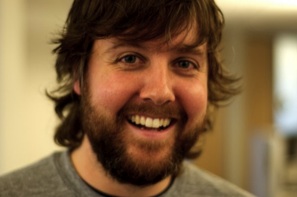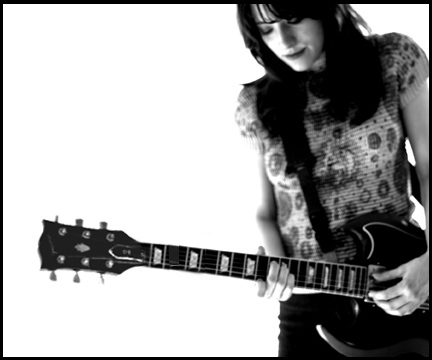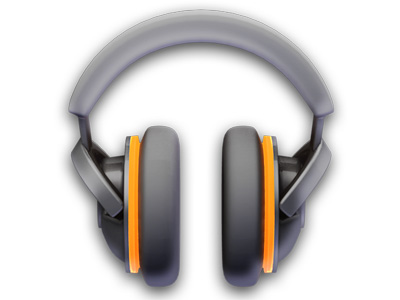Videos by American Songwriter
Here’s a scenario. You’re an artist just getting your career started. Sound familiar? Maybe you have 1,000 fans, maybe 100. Maybe 10. How do you get these crucial early fans to buy your music or merch? How and where do they buy it?
That’s where Topspin, a company that makes marketing and distribution software, comes in. Bob Moczydlowsky, Topspin’s VP of Product, continues the story like this.
The evangelical fans interact with you (the artist) a lot in the early days. They buy lots of things and spread the word to their friends online. Through these interactions, a second generation of fans begins to discover your music. This group might simply head over to Spotify or Rdio or Mog, but doesn’t buy anything directly from the artist.
Then there’s a tipping point when this new, until-now passive fan wants to get more involved. There’s no longer enough content inside Spotify, so there’s an opportunity to forge a “path back to the artist” (Moczydlowsky’s phrase), where the artist might then sell them a t-shirt, physical CD, or concert ticket.
This, in a nutshell, is called “direct-to-fan” and it has become a blueprint for e-commerce success for the 21st century musician.
Topspin has been one of the biggest names in the business of direct-to-fan and, until recently, mostly big names like Paul McCartney, Eminem, and The Beastie Boys have used the service. But now Topspin is changing their tune, opening up their software on a self-serve platform that any can be used by any artist, any size.
 “From day one, [we’ve been about] about trying to democratize marketing and direct-to-fan retail the way Pro Tools democratized recording,” Moczydlowsky said recently by phone from the company’s office in Los Angeles.
“From day one, [we’ve been about] about trying to democratize marketing and direct-to-fan retail the way Pro Tools democratized recording,” Moczydlowsky said recently by phone from the company’s office in Los Angeles.
“We started at the top,” he goes on. “What are a big artists’ needs? What products do they need to sell? And we built the software and now are turning around and selling it to everyone.”
But making software that’s as easy to use for professionals as it is for beginners adds up to no small task. The comparison to Pro Tools, which in the ’90s in early ’00s gave musicians the ability to record music on a laptop computer instead of having to book costly studio time, is an apt one.
In fact, Topspin was launched by Digidesign co-founder and music visionary Peter Gotcher. (Digidesign, which makes Pro Tools, was acquired by Avid in 2001.) Moczydlowsky says Topspin has always emulated software products like Apple’s Final Cut Pro and the Adobe Creative Suite, which offer advanced tools for consumers and pros alike.
But while Pro Tools, Final Cut, and Photoshop offer the tools to make art, Topspin helps get the art out into the world.
“We want to be able to help artists put their offers anywhere where they create outposts for their fans to congregate,” says Moczydlowsky. You’ve probably seen Topspin widgets offering a free download in exchange for an email address on blogs and other music sites.
“The future of distribution for artists is [having] one place where I can manage my products, media, and offerings, and a technology partner who can route those offers to places where people discover music on the web,” says Moczydlowsky.
Moczydlowsky says he even envisions a day where the web will be populated not with “Buy on iTunes” and “Buy on Amazon” links, but “Buy Direct From Artist” buttons. “If a fan types an artist name into a search engine they might end up in the Amazon marketplace, MySpace, or millions of places. Artists should have the opportunity to have a retail transaction in those spaces.”
The places where Topspin is looking next are the music discovery subscription services like Spotify and Rdio that are catching on with consumers. But while these platforms are great tools for consumers to discover new music, they aren’t necessarily a place where an artist can sell a ticket or t-shirt to a fan.
“Artists are great at non-commodity products – signed paintings, lyric sheets, phone calls, meet and greets – things which don’t fit into subscription interfaces,” says Moczydlowsky.
Take for example this summer’s McCartney II reissue, which Topspin handled digitally. Various packages of McCartney’s third solo album (numbers were never Paul’s strong suit) offer bonus tracks, DVDs with rare footage, and vinyl bundles, among other non-commodity offers.
But even for artists who aren’t quite at the point in their career where they’re selling out stadium tours, Topspin provides some smart options for engaging fans.
“If you’ve succeeded in driving someone to your website,” says Moczydlowsky, “The last thing you want to do is sell them a $0.99 download. You want to sell them an album or a bundle.”
“If you only have one good song, don’t sell it, give it away. Because those email addresses are worth way more than a dollar to you.”
American Songwriter readers can use the comp code “SONGWRITER” to redeem a three-month Topspin Plus account for free. Sign up at topspinmedia.com.














Leave a Reply
Only members can comment. Become a member. Already a member? Log in.